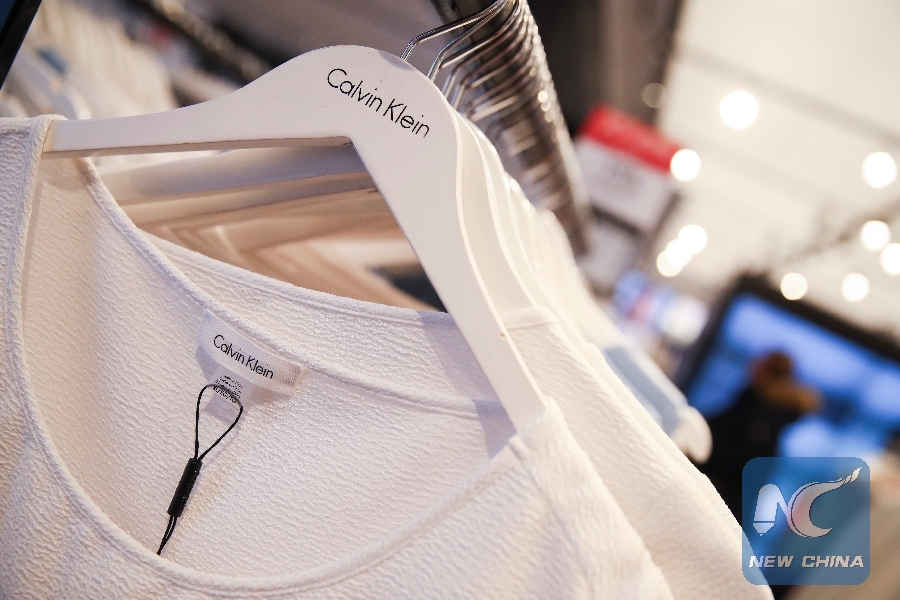
File Photo: Clothes made in China are on sale at a Macy's store in New York, the United States, on March 22, 2018. (Xinhua/Wang Ying)
WASHINGTON, May 16 (Xinhua) -- Slapping higher tariffs on Chinese imports cannot fix any trade problem between China and the United States, but will only hurt American consumers and businesses, said a senior executive of a major U.S. trade association.
"Taxing Americans is not the way to resolve the trade war," Nate Herman, senior vice president for supply chain of the American Apparel and Footwear Association (AAFA), told Xinhua on Wednesday, echoing the argument that additional tariffs are effectively a tax on Americans.
"It's not effective and only hurts American businesses, American consumers and American workers," he said.
The United States increased additional tariffs on 200 billion U.S. dollars' worth of Chinese goods from 10 percent to 25 percent on Friday, and has threatened to raise tariffs on some 300 billion dollars' worth of Chinese imports yet to be hit.
Herman said his association, which represents over 1,000 well-known brands worldwide, is seriously affected by the tax increase and concerned about the latest tariff threat in particular.
The AAFA said in a statement Monday that the latest U.S. tariff threat is "catastrophic for the U.S. economy," adding it is "severely disappointed" that the potential duties will cover products "including clothing, shoes, and other textiles."
"We're trying to prepare (for the new tariffs), but as you know, it's not easy to move supply chains that have been built up, in many cases, over 15 to 20 years in China," he said, adding that AAFA member companies' relationships with Chinese suppliers are "unique."
According to Herman, today 82 percent of all travel goods and fashion accessories, 69 percent of all shoes, and 42 percent of all apparel sold in the United States come from China.
Before the interview, Herman testified at a hearing held by the Office of the United States Trade Representative (USTR), which was soliciting public comments regarding the potential imposition of more tariffs on imports from the European Union (EU).
Washington alleged that the EU and certain member countries subsidized large civil aircraft manufacturers, consequently harming U.S. interests in the aviation sector.
Herman said in his testimony that the industry AAFA represents was "dragged into" the U.S.-EU aviation dispute. "It makes no sense, but here we are," he said.
The industry's global value chains, Herman said, directly employ over four million Americans, and "are under a sustained attack right now by our own government."
With respect to China, Herman said "most companies making clothes, shoes, and fashion accessories in the United States today rely on textiles and other inputs from China to manufacture their products."
He lamented the fact that due to the U.S. tariff measures, "exports to China of U.S.-made cotton, textiles, clothes, shoes, travel goods, and fashion accessories all face significant retaliatory tariffs."
"We urge the government not to impose retaliatory tariffs on our industry. We shouldn't be here," Herman said in the closing remarks of his testimony.
"Just as important, our industry, and our four million American workers, can't afford yet another new tax on our businesses and our consumers," he said.

